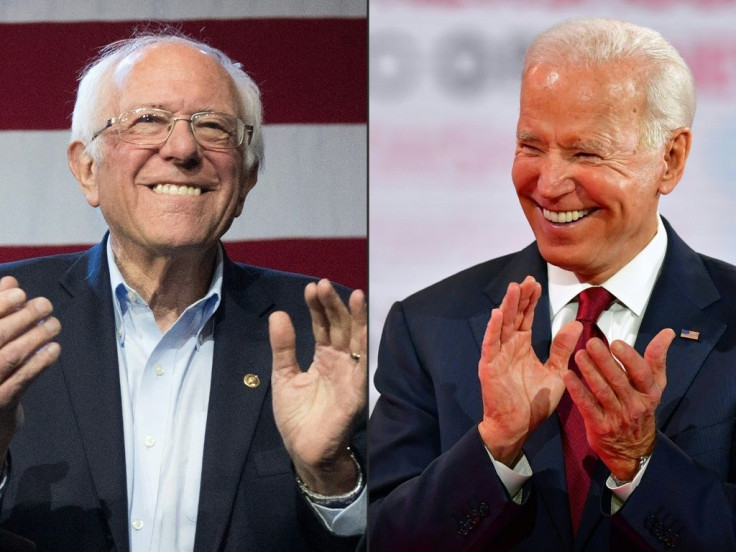Biden Or Bust? Bernie Sanders Endorses Former VP, Says 'We Need You In The White House'

KEY POINTS
- Biden had a more than 300-delegate lead over Sanders ahead of Wisconsin's primary last week. Those results have yet to be released
- In 2016, Sanders did not end his campaign until June and did not endorse Hillary Clinton until July, giving the nominee little time to bring the party together
- Biden and Sanders agreed to establish task forces on policy issues
Vermont Sen. Bernie Sanders on Monday endorsed former Vice President Joe Biden for the Democratic presidential nomination, removing the remaining stumbling block to party unity ahead of the fight to oust President Trump from the White House in November.
The move signals to Sanders’ supporters that they, too, should support Biden less than a week after the self-described democratic socialist ended his quest for the nomination, admitting Biden had too great a lead in the number of delegates necessary to win the top slot on the general election ballot.
The Democratic primary season has been upended by the coronavirus pandemic, which has forced numerous states to postpone their primaries, with many recommending absentee balloting rather than in-person voting. All campaign events have been suspended, and the party postponed its nominating convention until August.
Sanders and Biden appeared together on a split screen on each other’s live streams.
“We need you in the White House. I will do all that I can to make that happen, Joe” Sanders said.
“I’m going to need you, not just to win the campaign, but to govern,” Biden responded.
Joe Biden to Bernie Sanders: "If I am the nominee which it looks like now you just made me, I'm going to need you not just to win the campaign but to govern." https://t.co/QuI3wLTEqw pic.twitter.com/xdRaCkXlpZ
— The Hill (@thehill) April 13, 2020
“Unity,” Biden tweeted.
Unity. pic.twitter.com/cZxaRCY8jr
— Joe Biden (@JoeBiden) April 13, 2020
“To Bernie’s supporters: I see you, I hear you, and I understand the urgency of what it is we have to get done in this country,” Biden said, hoping to avoid the disillusionment that prevented Sanders’ 2016 supporters from backing Hillary Clinton. In 2016, Sanders hung on until well into June before ending his campaign and did not endorse his rival until July.
To Bernie’s supporters: I see you, I hear you, and I understand the urgency of what it is we have to get done in this country.
— Joe Biden (@JoeBiden) April 13, 2020
I hope you will join us. You are more than welcome on this campaign. You’re needed. https://t.co/vJXlroCdDd
Ahead of the announcement, Sanders tweeted the party “must come together to defeat the most dangerous president in modern history.”
We must come together to defeat the most dangerous president in modern history. I'm joining @JoeBiden's livestream with a special announcement. https://t.co/AC3zh3ChX3
— Bernie Sanders (@BernieSanders) April 13, 2020
Biden and Sanders have been talking for weeks about finding common ground. Biden is seen as a centrist while Sanders represents the progressive wing of the Democratic party, championing such issues as universal healthcare coverage and free college tuition.
The two agreed Monday to establish six task forces on policy issues following Biden’s announcement last week he would embrace more progressive positions like lowering the age for Medicare to 60 and expanding student debt forgiveness for low- and middle-income families.
"I think that your endorsement means a great deal," Biden said. "It means a great deal to me. I think people are going to be surprised that we are apart on some issues but we're awfully close on a whole bunch of others.”
Rep. Alexandria Ocasio-Cortez, D-N.Y., one of Sanders’ most prominent supporters told the New York Times the Biden campaign had yet to reach out to her.
© Copyright IBTimes 2024. All rights reserved.






















